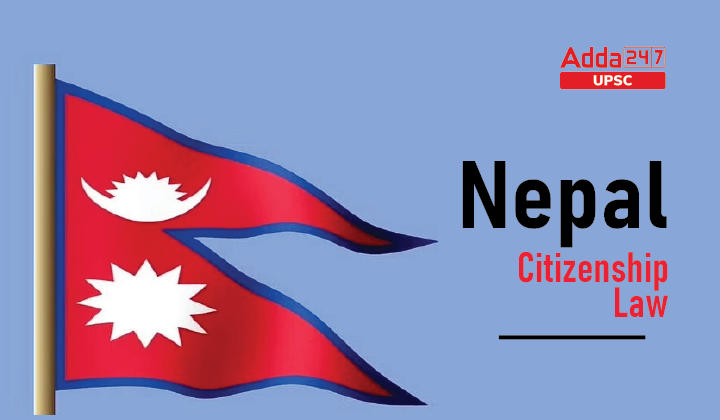Table of Contents
Nepal Citizenship Law-Relevance for UPSC Exam
General Studies II- Bilateral, regional and global groupings and agreements involving India and/or affecting India’s interests.
In News
Nepal President Bidhya Devi Bhandari sent back the Citizenship Amendment Act, 2006 to the Pratinidhi Sabha (House of Representatives), the lower house of the Nepal Parliament, urging the members to reconsider the Act.
What is the issue of citizenship in Nepal about?
- Nepal transitioned into a democracy beginning with the fall of the monarchy in 2006 and the subsequent election of the Maoist government in 2008.
- The emergence of the multiparty system was followed by the adoption of a constitution on September 20, 2015.
- All Nepalese citizens born before this date got naturalized citizenship but their children remained without citizenship as that was to be guided by a federal law which has not yet been framed.
- This amendment Act is expected to pave the way to citizenship for many such stateless youth as well as their parents.
What are the issues with the Act?
- The main criticism against the Citizenship Amendment Act, 2006 is that it goes against established parameters of gender justice.
- A cursory reading also reveals contradictions among various sections of the law.
- According to Article 11(2b), a person born to a father or a mother with Nepalese citizenship can get citizenship by descent.
- Article 11(5) of the constitution says a person who is born to a Nepalese mother (who has lived in the country) and an unidentified father will also get citizenship by descent but this section appears humiliating for a mother as she has to declare that her husband is unidentified for the child to be eligible for citizenship.
- In case of a Nepalese father, such declarations are not required.
- Article 11(7) which says that a child born to a Nepalese mother and a father holding a foreign citizenship can get “naturalized citizenship” in accordance with the laws of Nepal appears to contradict Article 11(2b).
- It places a condition of permanent residency on the mother (and the child) which will determine the grant of citizenship for the child.
Why has the amendment been framed?
- There is an unarticulated concern in the orthodox sections of the country that as Nepalese men, particularly from the Terai region, continue to marry women from northern India, Nepalese identity would be undermined because of this “Beti-Roti” (Nepalese men marrying Indian women) issue, many women could not become citizens of Nepal as they were subjected to the infamous seven-year cooling off period before they could apply for citizenship in Nepal.
- As such women were stateless, children of such families were also often found to be without Nepalese citizenship.
- The new amendments have done away with the cooling off period for these stateless women.
- This will benefit the children of such families where the mother and children remained stateless for years.
What is the road ahead for the Act?
- Nepal Citizenship Struggle Committee held a protest in Kathmandu demanding that President Bhandari should ratify the Act that was passed again by the Pratinidhi Sabha for the second time. They argue that women of Indian origin, who were deprived of rights because of the cooling off period and bureaucratic procrastination, and their children will be stuck in a stateless condition if the Act is not recognised by the President’s office.




 TSPSC Group 1 Question Paper 2024, Downl...
TSPSC Group 1 Question Paper 2024, Downl...
 TSPSC Group 1 Answer key 2024 Out, Downl...
TSPSC Group 1 Answer key 2024 Out, Downl...
 UPSC Prelims 2024 Question Paper, Downlo...
UPSC Prelims 2024 Question Paper, Downlo...




